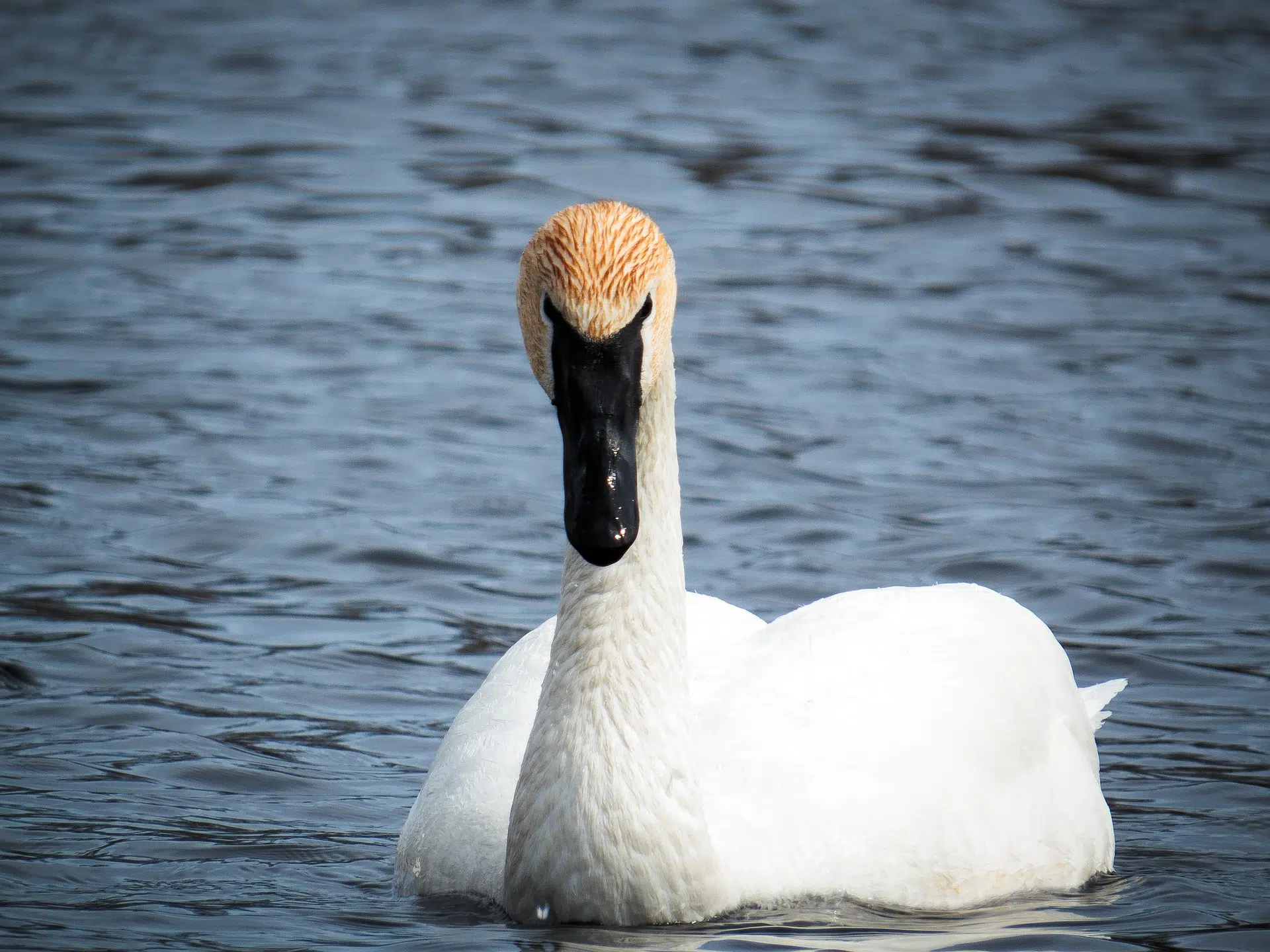For many, Trumpeter swans are a sign of spring. From almost being hunted to extinction, these magnificent birds have made a comeback. They weigh up to 35 pounds and have a wingspan of almost 7 feet. They are identifiable by their large sloped black beak and black webbed feet. But the most noticeable thing about them is their sound.
Brian Salt is the CEO and founder of Salthaven Wildlife Rehabilitation & Education centre.
“When you hear them, they sound different. It’s almost like a whistle. It’s a higher pitch than the Canada geese. And when you see them, you know, spring is just around the corner.”
Salt calls these swans the ‘harbingers of spring’
“They just seem to have that sense about them when there’s going to be open water, if not right away then in the very near future. Plus, they’re beautiful birds. They are one of the largest and heaviest birds, if not the largest bird that we have in North America. They’re pretty incredible.”
These birds were almost hunted to extension in Ontario. Salt also mentioned that many of them died from lead poising.
“They hunt in shallow waters. Sometimes they’ll pick up lead from old lead shots. That was a real problem back then, because hunters could still hunt with lead pellets. And swans will eat fish eggs in some cases. So, these little lead pellets kind of looked like something that would taste good. They ended up swallowing that and they end up dying of lead poisoning.”
In 1917, the Migratory Birds Convention Act was formed. This act protects migratory birds in Canada and the United States. The Trumpeter swan is now protected under this act. Since then, it’s been estimated over 16,000 Trumpeter swans are in Ontario. It’s no longer on the endangered species list.
Of course, when anyone goes to a park to feeds ducks, geese and swans, they bring bread. But what most people don’t realise is bread does more harm than you think.
“We’ve done several post-mortems on ducks and geese that have been fed copious amounts of bread. If you took a piece of bread and you squeezed it in your hand as hard as you could, then open your hand, you don’t have bread anymore, you’ve got dough. And that’s exactly what happens in the crops of these birds. And so, they end up dying of emaciation on a full stomach, because nothing can pass by it.”
If you do want to feed the wildlife, Salt recommends shelled sunflower seed, cut up grapes and cracked corn.






Comments